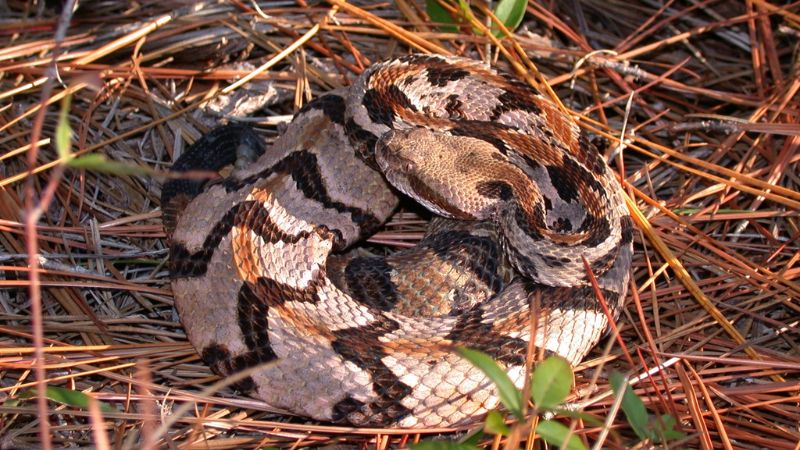Rattlesnakes are a well-known and often feared group of venomous snakes in the United States. They inhabit a variety of environments across the country, from deserts to forests. However, not every state hosts these slithering creatures. If you’re curious about which states are free of rattlesnakes, read on to discover more.
Alaska

Alaska’s cold climate and long winters are inhospitable to rattlesnakes. These reptiles prefer warmer environments and cannot survive the extreme cold and lengthy periods of snow and ice that characterize Alaska’s landscape. As a result, Alaska is entirely free of rattlesnakes, making it a safe haven for those wary of these venomous snakes.
Hawaii
Hawaii, being an isolated group of islands in the Pacific Ocean, does not have any native rattlesnakes. The isolation and unique ecosystem of Hawaii have prevented these snakes from establishing a presence there. Consequently, Hawaii is another state where residents and visitors don’t need to worry about encountering rattlesnakes.
Maine
Maine’s cool climate and forested landscape are not conducive to rattlesnake habitation. The state’s northern location and harsh winters create an environment where rattlesnakes cannot thrive. Therefore, Maine is free from rattlesnakes, allowing outdoor enthusiasts to explore its wilderness without fear of encountering these snakes.
Rhode Island
Rhode Island’s small size and coastal climate do not support the presence of rattlesnakes. The state lacks the extensive rural and wild areas that rattlesnakes typically inhabit. Additionally, the cooler climate and urban development further limit their potential habitats, making Rhode Island another rattlesnake-free state.
Washington

While some parts of Washington state have environments that could support rattlesnakes, such as the dry eastern regions, the western part of the state, with its wet, temperate climate, does not. The Cascade Mountain range acts as a barrier, keeping rattlesnakes from migrating westward. Thus, many areas in Washington, particularly the western parts, are free from these snakes.
New Hampshire
Similar to Maine, New Hampshire’s climate and geographical location make it unsuitable for rattlesnakes. The state’s cold winters and mountainous terrain are not ideal for these reptiles, ensuring that New Hampshire remains free of rattlesnakes. This makes it another state where hikers and outdoor lovers can enjoy nature without concern for venomous snake encounters.
Vermont
Vermont, with its dense forests and cold winters, does not provide a suitable habitat for rattlesnakes. The state’s environment and climate are too harsh for these snakes to survive, which means Vermont is also free of rattlesnakes. Outdoor activities in Vermont are safe from the risk of rattlesnake bites.
Connecticut
Connecticut does not have native rattlesnake populations. The state’s mix of urban areas and temperate forests does not support the ecological needs of rattlesnakes. Moreover, development and climate factors further inhibit their presence, ensuring that Connecticut remains a state where rattlesnakes are not a concern.
Massachusetts

Massachusetts, particularly in its more developed and cooler regions, does not have suitable conditions for rattlesnakes. Although there are historical records of rattlesnake sightings, ongoing habitat loss and urbanization have reduced their presence significantly. Currently, Massachusetts is considered largely free of rattlesnakes.
